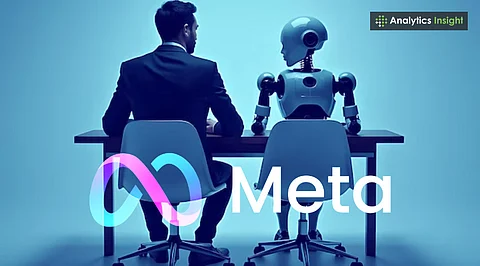

Meta’s aggressive hiring spree is intensifying competition for top AI talent across the tech industry.
This strategy could fast-track Meta’s dominance in AI research, innovation, and infrastructure.
The ongoing talent war may widen the gap between tech giants and smaller AI startups struggling to retain experts.
AI has become increasingly important in the tech industry, prompting companies to compete fiercely to develop the most advanced systems. This competition means they are all striving to hire top-tier AI talent. Meta is a significant player in this arena.
The company is actively seeking to recruit experts from diverse sources, including research labs, startups, and established technology firms. This aggressive hiring strategy could have a profound impact on AI research and potentially alter the dynamics within Meta itself. This article provides valuable insights into Meta's hiring strategies over the past few years.
Meta's been hiring a lot, which shows they really want to be the best at AI. They've invested money in the basic necessities and research. They are now placing a significant focus on talent. People are saying that Meta is offering AI researchers and engineers better pay, good incentives for staying, and flexible work arrangements that fit their lives.
Also Read: AI Developer Technology Engineer, NVIDIA
Meta is doing this because they want to make their platforms better with advanced AI. This could mean receiving better suggestions or introducing new content in the metaverse. To achieve this, they require individuals with extensive knowledge of machine learning, natural language processing, and computer vision.
Meta's hiring is shaking up the tech world. Companies like Google, Microsoft, and Amazon are seeing people leave for Meta. Because of this, these companies are changing how they pay, the work environment, and the level of autonomy employees have so that they can keep their employees.
To keep up, some businesses are investing heavily in AI. Others are joining forces with universities and seeking skilled individuals everywhere. As the big tech companies continue to grow, smaller startups may struggle to attract top talent. This is especially challenging when companies like Meta are in the mix.
AI startups, where researchers get to be creative, are in a tricky spot. Meta has been snatching up its AI whizzes with fatter paychecks, tons of tools, and gigs on massive, global projects. Startups struggle when competing against these giants. This change could hurt fresh thinking. Startups often initiate ambitious, experimental projects that big companies often skip due to the associated costs. If startups can't keep their people, we might not see as many new ideas.
Meta's hiring initiative could prove beneficial. By bringing together more talented individuals, it may accelerate the growth of AI. Additionally, they might release some free tools to support the tech industry. However, if only a few major companies dominate AI knowledge, we risk missing out on diverse perspectives. There's also a concern that this could lead to excessive centralization, raising questions about who truly controls AI and makes crucial decisions.
To address these issues, experts advocate for increased global collaboration in AI through open research and support for independent research centers. Governments and educational institutions are closely monitoring the situation. Some countries are investing in their own AI research to retain talent domestically. Universities are launching specialized programs and expedited AI degrees to develop a stronger workforce.
These initiatives aim to ensure fairness and inclusivity in the development and application of AI. There is a growing movement for public and private organizations to collaborate, allowing tech companies to back university research while respecting their independence.
Meta's changes to its staffing strategy are reshaping the global AI landscape. As the company's workforce grows, its impact on technological advancements is expected to increase.
There should be a strong emphasis on making AI accessible, diverse, and equitable for everyone involved. The competition to secure AI talent goes beyond just algorithms. Meta's current decisions are likely to produce long-term results.
1. What is Meta’s current approach to hiring AI talent?
Meta is aggressively hiring top AI experts by offering high salaries, bonuses, and flexible work terms.
2. How is Meta’s strategy affecting other tech companies?
Meta’s hiring spree is forcing rival firms to revise pay structures and improve retention efforts.
3. Why are startups struggling in the AI talent war?
Startups often struggle to match the salaries and project scales offered by tech giants like Meta.
4. What could be the risk of Meta dominating AI hiring?
Concentration of AI talent in one company could reduce innovation diversity and centralize control.
5. How are governments and universities reacting to the talent shift?
Governments and institutions are investing in research programs and partnerships to retain local AI talent.
